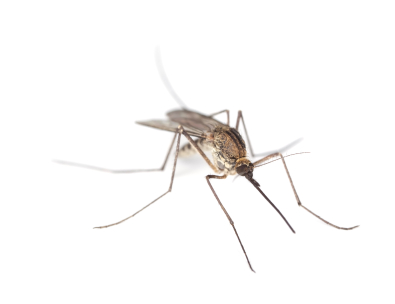- Sections :
- Crime & Public Safety
- Restaurants & Food
- Sports
- More
Categories
County urges residents to take precautions regarding mosquitoes

MONTGOMERY COUNTY, Texas — Record rainfall this spring and recent flooding will lead to increased standing water and a likely excess of mosquito breeding sites across our region, increasing the risk for mosquito borne disease, including West Nile Virus and the Zika Virus.
In light of the recent concerns especially over the Zika Virus, Montgomery County is encouraging residents to eliminate standing water on their properties and take other measures to protect themselves. The county continues its efforts to control mosquitoes through testing/trapping and spraying and is researching the possibility of expanding its testing efforts.
According to the Montgomery County Public Health District, as of April 22, there have been 31 confirmed Zika cases in Texas. Of those, 30 were in travelers who were infected abroad and one case of the disease being sexually transmitted by someone who acquired the Zika infection while traveling abroad. While Montgomery County has no confirmed cases Harris County has 12 confirmed cases. Travelers importing the virus into Montgomery County will likely be the method by which the virus enters our mosquito population here.
Once mosquito season begins here, if an individual with Zika virus is bitten by a mosquito, that mosquito can then pass on the virus to others. In coordination with the Montgomery County Public Health District and our county Public Health Authority, Dr. Mark Escott, we offer the following information:
What we know about Zika Virus:
Spread primarily by the Aedes ageypti and the Aedes albopictus mosquitoes. Which are common in Montgomery County
There has been a rapid spread in the disease in Brazil, South America, and the Caribbean.
Some people who are infected will get symptoms such as a fever, rash, joint pain, or redness of the eyes, but MOST will have NO SYMPTOMS
The outbreak in Brazil has been associated with a 20-fold increase in the cases of a birth defect called microcephaly. This is children with significantly smaller than normal heads and brain abnormalities.
The CDC has concluded that the Zika virus is responsible for microcephaly and other birth defects in unborn children of infected mothers.
The virus may be spread through unprotected sexual contact from a man to a woman at the time of conception or after she is already pregnant.
What we don't know about Zika Virus:
We don't know the percentage of people infected with Zika Virus that will become ill with symptoms or the percentage of pregnant women with Zika Virus that will have a child with birth defects.
We don't know if pregnant women and their unborn children are at risk only during the first trimester or throughout the pregnancy.
What we recommend:
Travel: If you are pregnant, or of child-bearing years, consider delaying travel to South America, Mexico, and the Caribbean. Talk to your doctor before planning trips to these areas.
To protect your home and property:
Avoid standing water by cleaning drains, removing tires or other items that hold water, and empty standing water in potted plants. Any water that can't be emptied should be treated with mosquito dunks.
Use screens on windows and doors to keep mosquitos outside your home.
Repair and seal your septic system to avoid this as a location for mosquito growth.
To protect yourself:
Wear long-sleeved shirts and pants and treat clothing with EPA approved repellent.
Use an EPA approved insect repellant on any exposed skin.
To protect communities and neighborhoods:
Work together with residents to identify potential breeding areas and treat or remove these areas of concern.
Coordinate information sessions for their community to raise awareness of the importance of mosquito control.
Coordinate with county officials to assist in identifying appropriate sites for mosquito trapping and testing.
Communicate with county officials to coordinate spraying efforts to ensure appropriate rotation of chemicals used for spraying.
Further information may be found at:
The Montgomery County Public Health District: http://mcphd-tx.org/
The Centers for Disease Control and Prevention: http://www.cdc.gov/zika/
In light of the recent concerns especially over the Zika Virus, Montgomery County is encouraging residents to eliminate standing water on their properties and take other measures to protect themselves. The county continues its efforts to control mosquitoes through testing/trapping and spraying and is researching the possibility of expanding its testing efforts.
According to the Montgomery County Public Health District, as of April 22, there have been 31 confirmed Zika cases in Texas. Of those, 30 were in travelers who were infected abroad and one case of the disease being sexually transmitted by someone who acquired the Zika infection while traveling abroad. While Montgomery County has no confirmed cases Harris County has 12 confirmed cases. Travelers importing the virus into Montgomery County will likely be the method by which the virus enters our mosquito population here.
Once mosquito season begins here, if an individual with Zika virus is bitten by a mosquito, that mosquito can then pass on the virus to others. In coordination with the Montgomery County Public Health District and our county Public Health Authority, Dr. Mark Escott, we offer the following information:
What we know about Zika Virus:
Spread primarily by the Aedes ageypti and the Aedes albopictus mosquitoes. Which are common in Montgomery County
There has been a rapid spread in the disease in Brazil, South America, and the Caribbean.
Some people who are infected will get symptoms such as a fever, rash, joint pain, or redness of the eyes, but MOST will have NO SYMPTOMS
The outbreak in Brazil has been associated with a 20-fold increase in the cases of a birth defect called microcephaly. This is children with significantly smaller than normal heads and brain abnormalities.
The CDC has concluded that the Zika virus is responsible for microcephaly and other birth defects in unborn children of infected mothers.
The virus may be spread through unprotected sexual contact from a man to a woman at the time of conception or after she is already pregnant.
What we don't know about Zika Virus:
We don't know the percentage of people infected with Zika Virus that will become ill with symptoms or the percentage of pregnant women with Zika Virus that will have a child with birth defects.
We don't know if pregnant women and their unborn children are at risk only during the first trimester or throughout the pregnancy.
What we recommend:
Travel: If you are pregnant, or of child-bearing years, consider delaying travel to South America, Mexico, and the Caribbean. Talk to your doctor before planning trips to these areas.
To protect your home and property:
Avoid standing water by cleaning drains, removing tires or other items that hold water, and empty standing water in potted plants. Any water that can't be emptied should be treated with mosquito dunks.
Use screens on windows and doors to keep mosquitos outside your home.
Repair and seal your septic system to avoid this as a location for mosquito growth.
To protect yourself:
Wear long-sleeved shirts and pants and treat clothing with EPA approved repellent.
Use an EPA approved insect repellant on any exposed skin.
To protect communities and neighborhoods:
Work together with residents to identify potential breeding areas and treat or remove these areas of concern.
Coordinate information sessions for their community to raise awareness of the importance of mosquito control.
Coordinate with county officials to assist in identifying appropriate sites for mosquito trapping and testing.
Communicate with county officials to coordinate spraying efforts to ensure appropriate rotation of chemicals used for spraying.
Further information may be found at:
The Montgomery County Public Health District: http://mcphd-tx.org/
The Centers for Disease Control and Prevention: http://www.cdc.gov/zika/
Comments •

















